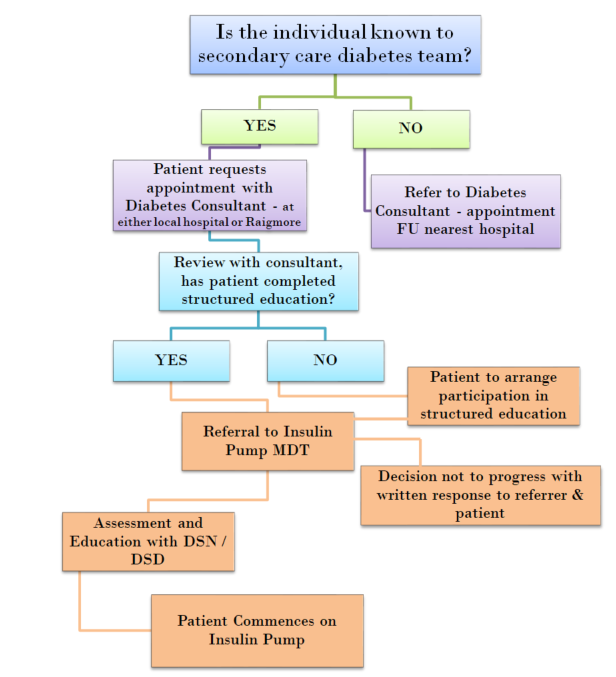Referrals to the pump service should be made by healthcare professionals with diabetes specialist skills, after the patient has completed appropriate structured education and is using an intensive multi-dose insulin regimen therapy, to the best of the their ability. Individuals may also refer themselves if they feel they meet criteria or would like clarification on requirements to obtain an insulin pump. Please see appendix 1
Indications for CSII in adults with Type 1 Diabetes Mellitus (over 16 years)
- Individuals experiencing recurrent unpredictable hypoglycaemia
- Individuals pre-pregnancy who despite completing structured education do not achieve pre-pregnancy targets, 3 months post structured education
- Individuals with unstable diabetes control impacting negatively with significant measurable consequence on quality of life despite having completed structured education (e.g. HEIDI)
- recurrent hospital admissions
- ongoing fear of hypoglycaemia or frequent mild episodes (especially if nocturnal or if impaired hypo awareness) being a barrier to tightening glycaemic control to HbA1c < 69mmol/mol
- ability to manage current employment
- Individuals engaging in physical activity on a regular basis which interferes significantly with blood glucose control despite structured education.
Considerations
Individuals must have stable mental health that does not impact on their ability to self manage or engage with the specialist team.

